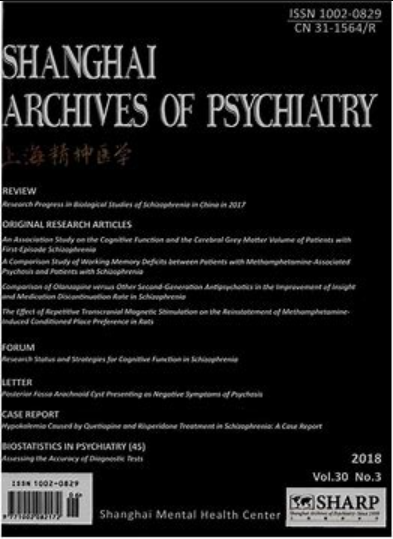重复经颅磁刺激治疗抑郁症的机制。
引用次数: 52
摘要
抑郁症是目前最常见的心理健康问题之一。然而,基于机制的治疗这种疾病仍然难以捉摸。重复经颅磁刺激(rTMS)是一种非侵入性的方法,可以通过脉冲磁场刺激大脑中的电活动,被认为是治疗抑郁症的有效方法。本文综述了rTMS治疗抑郁症的临床和基础研究的主要成果,包括rTMS的抗抑郁疗效、基本原理、调节神经回路、神经递质和脑网络、海马神经发生、突触和分子通路的能力。本文章由计算机程序翻译,如有差异,请以英文原文为准。
Mechanism of Repetitive Transcranial Magnetic Stimulation for Depression.
Depressive disorder is one of the most common mental health problems currently. However, the mechanism-based treatments for this disorder remain elusive. Repetitive transcranial magnetic stimulation (rTMS), a non-invasive procedure that could stimulate electrical activity by a pulsed magnetic field in the brain, is considered to be an effective treatment for depression. Here, we review the main findings from both clinical and basic research on rTMS for depression, including its antidepressant efficacy, basic principles, as well as its ability to regulate neural circuits, neurotransmitters and brain networks, neurogenesis in hippocampus, and synaptic, and molecular pathways.
求助全文
通过发布文献求助,成功后即可免费获取论文全文。
去求助
来源期刊
自引率
0.00%
发文量
2341
期刊介绍:
Shanghai archives of psychiatry (bimonthly) was founded in 1959 and is sponsored by Shanghai Mental Health Center. The journal is aimed at mental health workers across the country, including psychiatrists and nurses, clinical psychologists, social workers, and people who are committed to the cause of mental health. It focuses on reporting clinical research results and practical experience in the field of psychiatry, and introduces the latest knowledge in psychiatry and related fields. The columns include monographs, case reports, clinical case discussions, reviews, mental health and law, and debates and discussions.

 求助内容:
求助内容: 应助结果提醒方式:
应助结果提醒方式:


